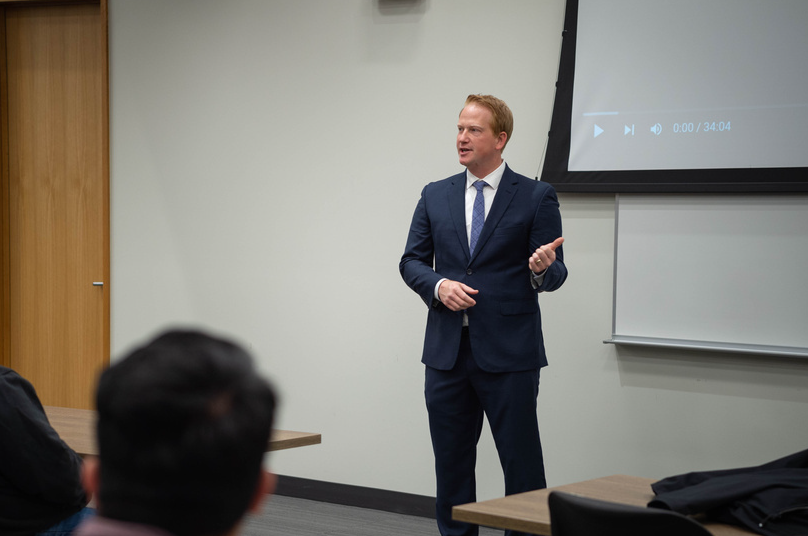Men are ready to modernize masculinity.
Masculinity has long been associated with stoicism, patriarchy, and self-reliance, but these traditional norms have proven detrimental to men's mental health. Higher rates of suicide, lower rates of help-seeking, and increased substance use and violence among men highlight the urgency for change. In his book "Man Kind: Tools for Mental Health, Well-Being, and Modernizing Masculinity," counseling psychologist Dr. Zachary Gerdes presents a transformative framework to help men foster collaboration, embrace vulnerability, and build mental resilience. By challenging outdated concepts of masculinity, Gerdes offers a path toward improved mental health and well-being for men. Societal expectations that encourage men to suppress emotions and avoid seeking help exacerbate men’s mental health challenges.
In this podcast, Dr. Gerdes covers the LIFT model of helping men modernize ideas about masculinity and live happier lives.
The LIFT Model
A Roadmap for Change: Dr. Gerdes introduces the LIFT model, a powerful tool for men seeking personal growth and better mental health. The model emphasizes four key elements:
Leverage: Encouraging men to collaborate and utilize available resources instead of isolating themselves. Seeking support and connecting with others can be empowering for men, fostering healthier relationships and emotional growth.
Insight: Understanding and addressing thoughts and behaviors from a psychological perspective. Men are encouraged to reflect on their actions and identify behaviors that might be harmful to themselves and others.
Freedom: Breaking free from rigid gender stereotypes that limit self-expression. The LIFT model encourages men to explore different aspects of their identity without fear of judgment.
Truth: Embracing emotional vulnerability and rejecting harmful notions of masculinity. Men are encouraged to express their feelings authentically, leading to more fulfilling relationships and personal growth.
In this episode, Dr. Gerdes expands on these practical steps for men to enhance their mental health and well-being. He draws on the latest psychological and social science research to establish a robust scientific foundation for improving men's mental health.
Dr. Gerdes discusses his background in psychology, his interest in men's health, and his motivation for writing "Man Kind." He emphasizes the importance of bridging the gap between the scientific literature on men's health and accessible resources for men seeking personal growth.
In a world polarized by extreme perspectives on masculinity, "Man Kind" offers a middle path forward. The book encourages men to embrace healthier versions of masculinity while retaining a sense of identity. Dr. Gerdes advocates for open communication, mutual consent, and equitable relationships as crucial components of healthy intimacy.
About Zachary Gerdes, Ph.D.
The psychologist for the Washington State Patrol in Washington State. He is a veteran of the Armed Forces and a former Captain in the United States Air Force. Previously he was the Director of Psychological Health for the 42nd Operational Medical Readiness Squadron and Chief of the Disaster Mental Health Team for the 42nd Air Base Wing on Maxwell Air Force Base. He was also a guest lecturer at Air University, which is the intellectual and leadership development center of the Air Force. His previous duty station prior was with the 88th Medical Group at Wright-Patterson Air Force Base.
Prior to serving as an officer in the Air Force, Dr. Gerdes held various clinical, teaching, and research positions in Ohio and Washington. He has a Ph.D. and master’s degree from the University of Akron and a bachelor’s degree from Seattle University. He was previously with the VA in both research and clinical roles, first at VA Puget Sound in Seattle and then at the Cleveland VA in Ohio. He has taught at the University of Akron, Northeast Ohio Medical University, and Cleveland State University. He was also previously with the Seattle Police Department doing domestic violence response work. He got his research start at John Gottman’s Relationship Research Institute in Seattle. He regularly publishes and presents research nationally. His book, Man Kind, is out now from Johns Hopkins University Press.
Show Notes
Dr. Zachary Gerdes’ Work
Amazon link to Man Kind: https://a.co/d/fwD2QHk
Connect with Dr. Gerdes
Twitter: @zacharygerdes
Other Masculinity and Mental Health Resources
Man Therapy
https://mantherapy.org/
Videos: https://www.youtube.com/@DrMahogany/videos
Guts, Grit & The Grind Book Series
https://www.gutsgritgrind.com/
BLOG: One Woman’s Thoughts on Masculinity: Why We All Must Dig Deeper in Our Understanding of What it Means to Be a Man https://www.sallyspencerthomas.com/dr-sally-speaks-blog/2018/6/4/one-womans-thoughts-on-masculinity-why-we-all-must-dig-deeper-in-our-understanding-of-what-it-means-to-be-a-man
Emotional Intelligence and Leadership: https://online.hbs.edu/blog/post/emotional-intelligence-in-leadership
ARTICLE: McKenzie SK, Collings S, Jenkin G, River J. Masculinity, Social Connectedness, and Mental Health: Men's Diverse Patterns of Practice. Am J Mens Health. 2018 Sep;12(5):1247-1261. doi: 10.1177/1557988318772732. Epub 2018 Apr 28. PMID: 29708008; PMCID: PMC6142169.
NOTE: The conclusions and opinions expressed here by Zachary Gerdes are his alone and do not necessarily reflect the official policy or position of the United States Air Force, Department of Defense, Federal Government of the United States, State of Washington, or the Washington State Patrol.







